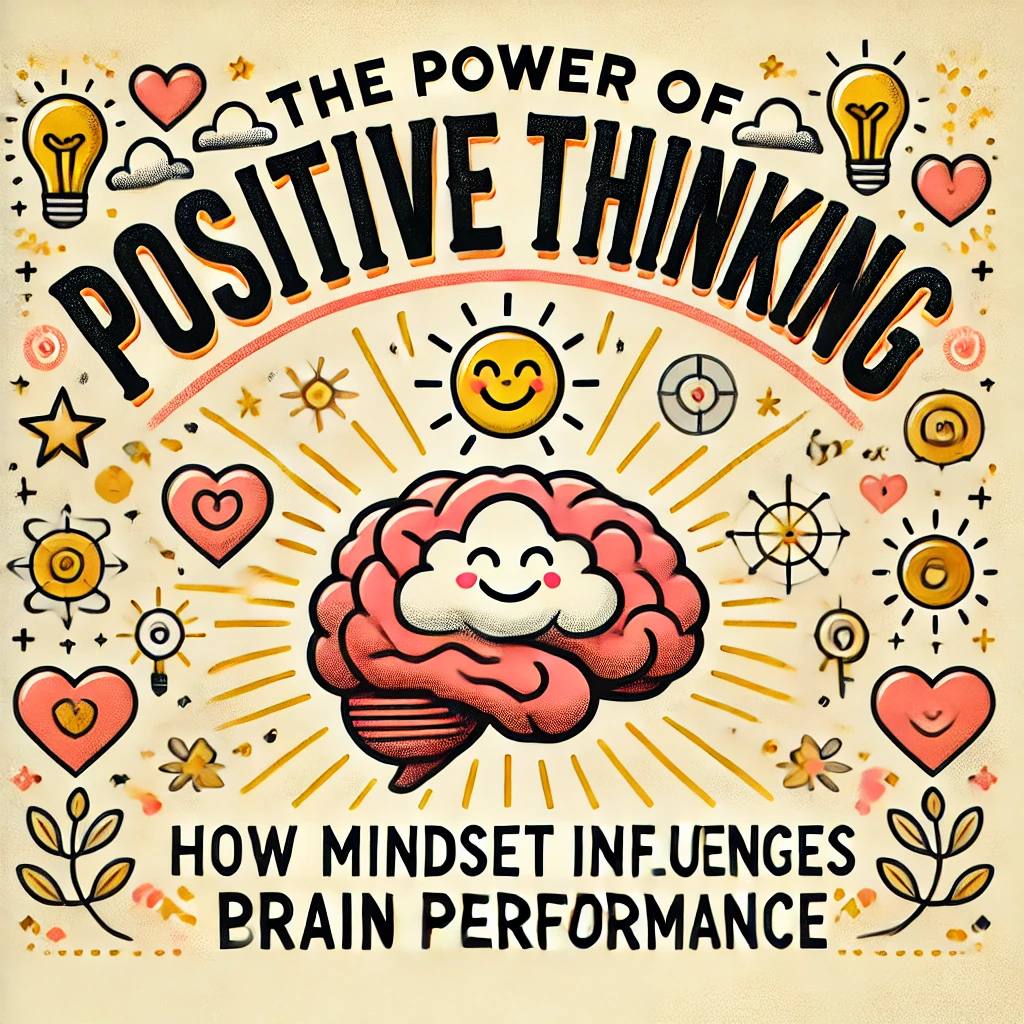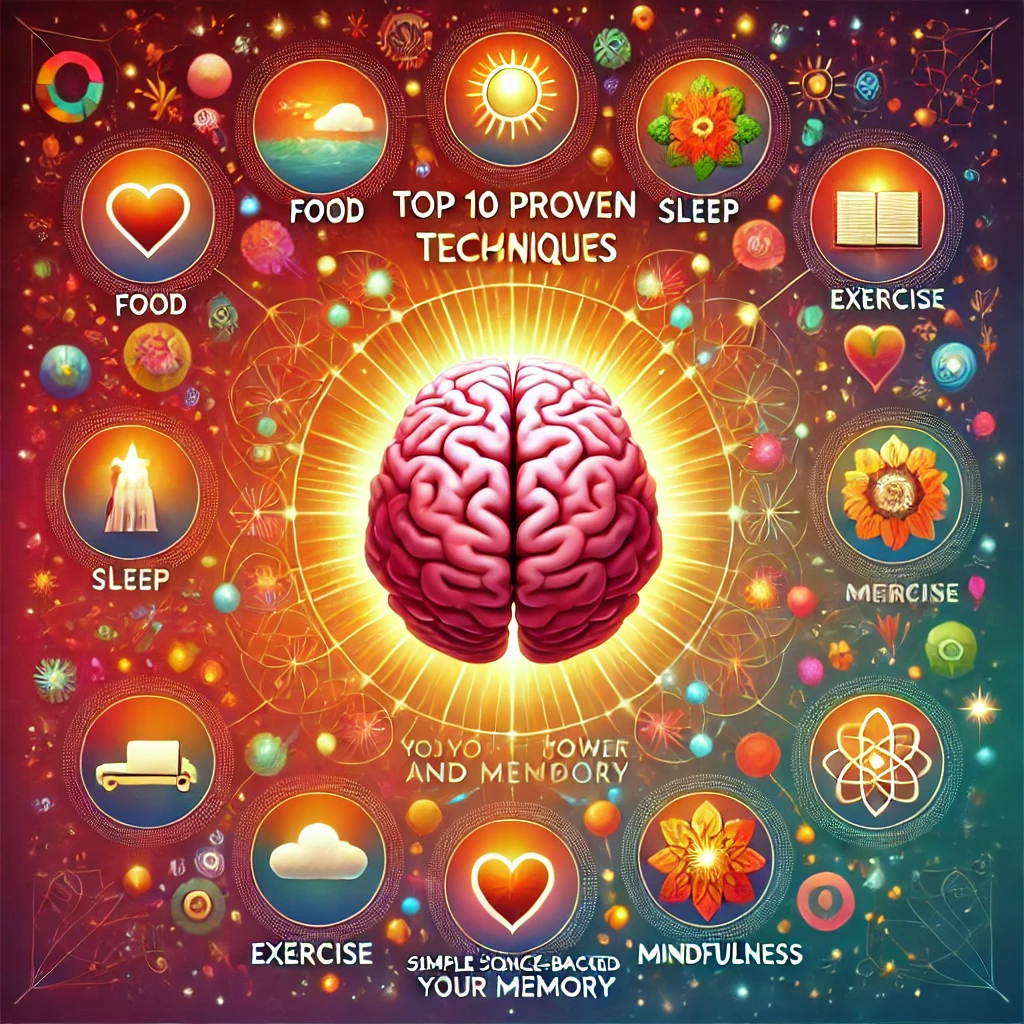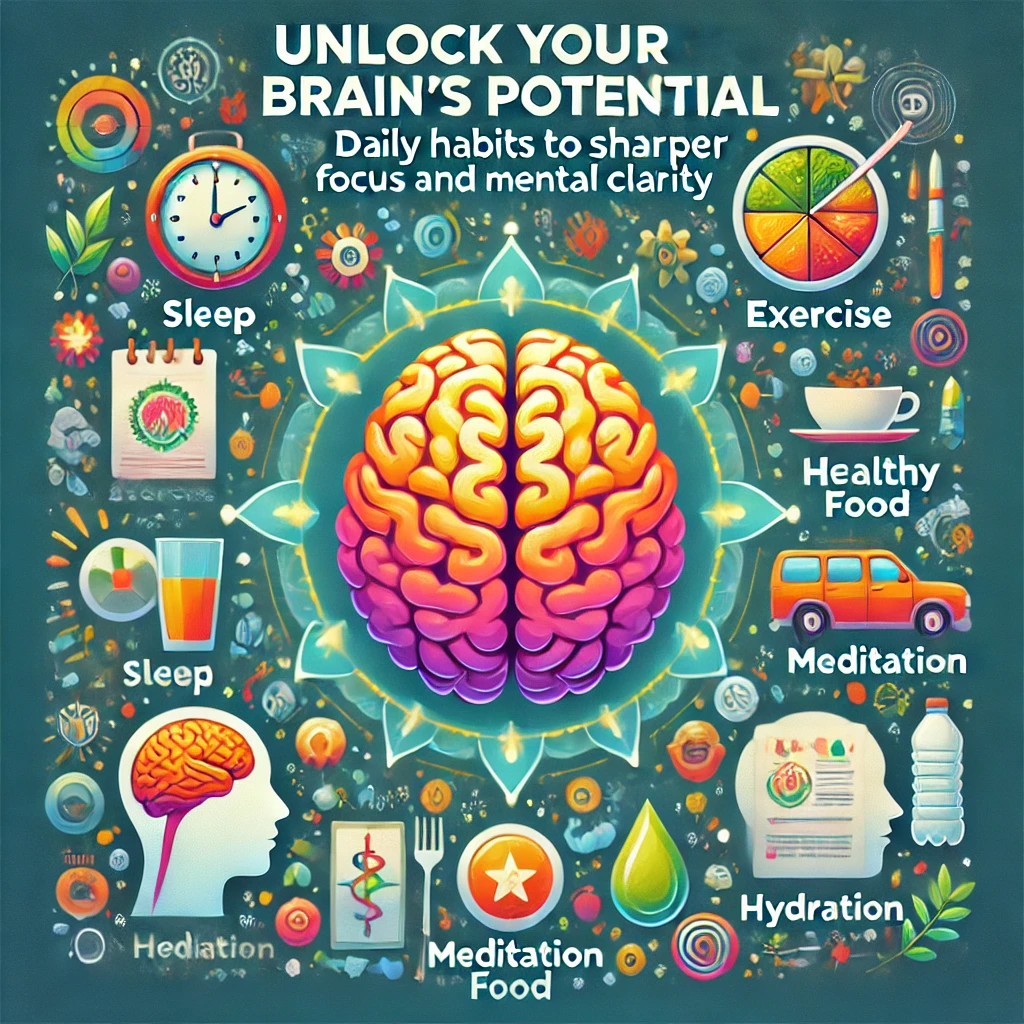Introduction
We’ve all heard that “a positive attitude can make all the difference,” but did you know that positive thinking can actually impact how your brain functions? The connection between a positive mindset and brain performance is profound. Research reveals that our thoughts and mindset can significantly affect our cognitive abilities, memory, focus, and even resilience against mental fatigue. When we approach life with optimism and positivity, we aren’t just lifting our spirits; we’re also boosting brain performance, mental clarity, and overall cognitive function.
In this article, we’ll explore the science behind positive thinking and brain performance, practical ways to cultivate a positive mindset, and relatable examples of how mindset impacts mental clarity and cognitive abilities.
1. How Positive Thinking Affects Brain Function
Positive thinking and brain performance are closely linked because positivity stimulates the release of feel-good chemicals like dopamine and serotonin, which help the brain stay focused and sharp. A positive mindset also influences the brain’s plasticity—the ability to create and strengthen neural pathways—which allows us to adapt to challenges and absorb new information effectively.
The science of positivity and brain function:
- Dopamine release: Dopamine plays a key role in motivation, focus, and pleasure. When we think positively, dopamine levels increase, improving mental clarity and cognitive performance.
- Neuroplasticity: Positivity helps reinforce brain pathways that encourage resilience, learning, and creativity. Essentially, the more we think positively, the more “wired” our brains become to focus and learn.
- Reduced cortisol: A positive mindset can help reduce cortisol, the stress hormone that negatively affects memory and cognitive abilities when elevated for long periods.
Relatable anecdote:
A friend of mine, who often used to feel overwhelmed by work pressure, decided to try positive affirmations each morning. Within a few weeks, she noticed she felt calmer and could focus better during stressful meetings. By shifting her mindset, she was able to boost her brain performance and handle tasks with more ease and confidence.
2. The Benefits of Positive Thinking for Brain Health
Positive thinking isn’t just about being happy; it’s about fostering a mindset that enhances cognitive performance, memory, and focus. Numerous studies show that individuals who maintain a positive outlook are better able to handle stress, stay productive, and think clearly during challenges.
Benefits of a positive mindset for brain health:
- Enhanced focus and productivity: Positivity helps us stay engaged and motivated, allowing for better concentration and goal achievement.
- Reduced mental fatigue: A positive outlook conserves cognitive energy, making it easier to perform complex tasks without burnout.
- Improved memory retention: Studies reveal that positive thinkers have better recall abilities, as reduced stress allows the brain to retain information more effectively.
Example:
In college, I used to worry about exams constantly, which left me mentally exhausted. But when I decided to focus on the effort I put in and my ability to adapt, I felt less drained and could retain information better. It turns out that a positive approach was just what my brain needed to remember facts and stay calm under pressure.
3. How Mindset Influences Cognitive Abilities
The connection between mindset and cognitive abilities goes beyond motivation. Positive thinking encourages openness, curiosity, and a willingness to learn, which directly impact our cognitive flexibility and problem-solving skills. When we believe we can grow and adapt, our brain responds by becoming more receptive to new information.
Ways a positive mindset enhances cognitive abilities:
- Improved problem-solving skills: Positive thinkers tend to approach problems from multiple angles and remain persistent, which strengthens critical thinking.
- Enhanced learning ability: A growth mindset nurtures curiosity, making it easier to engage in learning activities and retain information.
- Greater adaptability: Positive thinkers are more willing to embrace change, which improves mental flexibility and cognitive resilience.
Relatable anecdote:
My younger brother used to struggle with math. He always felt he just wasn’t “cut out” for it. But after his teacher encouraged him to adopt a growth mindset, he started viewing math as a skill he could develop rather than something he was naturally bad at. His positive outlook helped him approach problems differently, and over time, his grades and confidence both improved.
4. Boosting Brain Function with a Positive Mindset: Practical Techniques
Cultivating a positive mindset can be transformative for brain performance, and it doesn’t require a complete lifestyle overhaul. Here are some practical techniques to develop positivity and improve cognitive performance over time.
a) Practice Daily Gratitude
Practicing gratitude is one of the most powerful ways to foster a positive mindset. By focusing on the positive aspects of your life, you can boost brain function by shifting your brain’s focus from stressors to sources of joy and satisfaction.
How gratitude affects the brain:
Gratitude increases dopamine and serotonin levels, boosting mood and enhancing mental clarity. When we focus on what we appreciate, the brain strengthens pathways that support positivity, motivation, and emotional resilience.
Tips for practicing gratitude:
- Keep a daily gratitude journal and write down three things you’re grateful for each day.
- Reflect on positive experiences before bedtime, helping you end the day on a positive note.
- Share gratitude with others, which further reinforces positivity.
b) Use Positive Affirmations to Influence Brain Performance
Affirmations are powerful statements that help reinforce constructive thoughts and boost mental clarity. Regularly using affirmations can enhance cognitive function by encouraging positive self-belief, which strengthens neural pathways associated with confidence and resilience.
How affirmations impact the brain:
- They activate areas of the brain associated with self-affirmation and reward, helping us stay motivated and focused.
- Affirmations can help reduce anxiety and increase self-confidence, which supports mental clarity and decision-making.
Example:
I started using affirmations like “I am capable and resourceful” whenever I felt nervous about taking on new responsibilities at work. Over time, I noticed I felt more prepared to tackle challenges, and my ability to stay focused in high-pressure situations improved.
Tips for using affirmations:
- Choose affirmations that resonate with your goals and repeat them daily.
- Write affirmations on sticky notes and place them where you’ll see them often.
- Focus on affirmations that promote a growth mindset, like “I am always learning” or “Challenges help me grow.”
c) Engage in Mindfulness and Meditation
Mindfulness and meditation encourage positivity by helping you stay present and approach situations without judgment. Regular mindfulness practice can improve brain performance by reducing stress and enhancing focus, making it a valuable tool for mental clarity.
Benefits of mindfulness for cognitive performance:
- Lowers cortisol levels, which helps prevent memory impairment and cognitive fatigue.
- Increases grey matter in the brain regions responsible for learning, memory, and emotion regulation.
- Improves attention and focus, helping you stay on task and think clearly.
Relatable anecdote:
I started a 5-minute morning mindfulness routine and found that it significantly improved my ability to stay calm and focused throughout the day. By practicing mindfulness, I felt more grounded and less reactive, which enhanced my mental performance.
How to practice mindfulness:
- Start with a few minutes of guided breathing each day.
- Practice mindfulness during daily activities, such as eating or walking.
- Gradually increase meditation sessions to deepen your mindfulness practice.
d) Focus on Self-Compassion
Self-compassion is the ability to treat yourself kindly, especially during setbacks. It’s a powerful tool for maintaining a positive mindset because it helps you view challenges as learning experiences rather than failures.
How self-compassion boosts cognitive performance:
- It increases resilience, helping you recover from stress and stay mentally flexible.
- Self-compassion fosters a growth mindset, allowing you to adapt and stay motivated.
- Reduces anxiety, improving mental clarity and problem-solving abilities.
Example:
I used to be really hard on myself whenever I made a mistake, which only made me feel worse. Practicing self-compassion taught me to treat setbacks as opportunities to learn, and I found that my focus and confidence improved as a result.
Tips for practicing self-compassion:
- Reframe negative self-talk with gentle, understanding statements.
- Recognize your efforts and achievements, no matter how small.
- Remind yourself that setbacks are part of growth and don’t define your abilities.
5. The Long-Term Effects of Positive Thinking on Brain Health
The impact of a positive mindset on brain health isn’t just immediate; it offers long-term benefits that can protect against cognitive decline and support mental clarity well into old age. Research suggests that a positive outlook can lower the risk of dementia and support cognitive resilience, helping us maintain mental sharpness as we age.
Long-term benefits of a positive mindset for brain health:
- Reduced risk of cognitive decline: A positive outlook and reduced stress levels are associated with lower risks of dementia and memory loss.
- Improved emotional regulation: Positivity promotes emotional balance, which supports mental health and cognitive function.
- Increased mental flexibility: Positive thinkers tend to adapt better to change, which is essential for maintaining cognitive resilience.
Relatable anecdote:
My grandfather, who always stayed optimistic, has an impressive memory and mental clarity even at 85. He attributes his sharp mind to his focus on gratitude, curiosity, and always seeing the bright side, showing just how powerful a positive mindset can be for long-term brain health.
Conclusion
The power of positive thinking extends far beyond just feeling good; it has a profound impact on brain performance, cognitive abilities, and long-term mental health. By cultivating a positive mindset through gratitude, affirmations, mindfulness, and self-compassion, you can significantly boost brain function, mental clarity, and resilience against stress.
Incorporate these techniques into your daily life and remember that positivity isn’t about avoiding challenges; it’s about approaching them with confidence and a constructive attitude. Over time, you’ll likely notice improvements in your focus, productivity, and cognitive health, proving that a positive mindset truly is one of the best tools for enhancing brain performance.
FAQ Section
1. How does positive thinking improve brain performance?
Positive thinking releases dopamine and serotonin, which enhance focus, motivation, and mental clarity, all of which improve brain performance.
2. Can a positive mindset reduce stress?
Yes, positivity reduces cortisol levels, helping the brain handle stress more effectively and promoting mental clarity.
3. How does mindset influence cognitive abilities?
A positive mindset fosters openness and resilience, enhancing problem-solving, adaptability, and learning abilities over time.
4. What are some ways to practice positive thinking?
Practicing gratitude, using affirmations, engaging in mindfulness, and developing self-compassion are effective ways to cultivate positivity.
5. Can positive thinking improve memory?
Yes, positivity reduces stress and enhances neurotransmitter release, which helps support memory retention and mental clarity.
6. How long does it take to see results from positive thinking?
With consistent practice, many people notice improvements in mood and focus within a few weeks, while long-term benefits continue to build.
7. Does positive thinking impact mental clarity?
Absolutely, positive thinking reduces mental clutter by minimizing self-doubt and encouraging a growth mindset, leading to better mental clarity.
8. Can positivity protect against cognitive decline?
Studies suggest that positivity and stress reduction may help protect against age-related cognitive decline, promoting brain health.
9. How does self-compassion help cognitive performance?
Self-compassion reduces anxiety and fosters resilience, which supports decision-making, problem-solving, and overall mental clarity.



